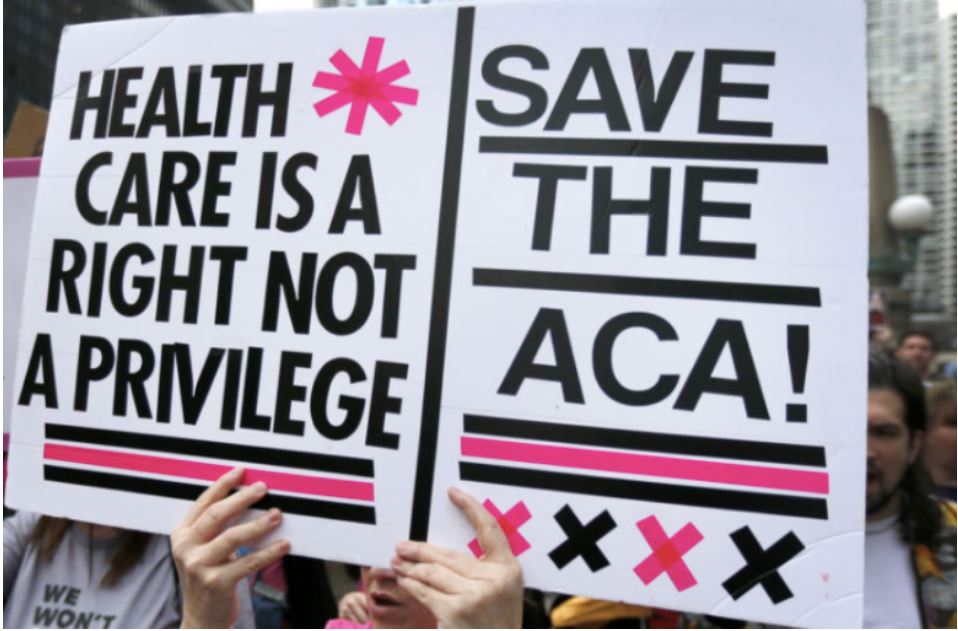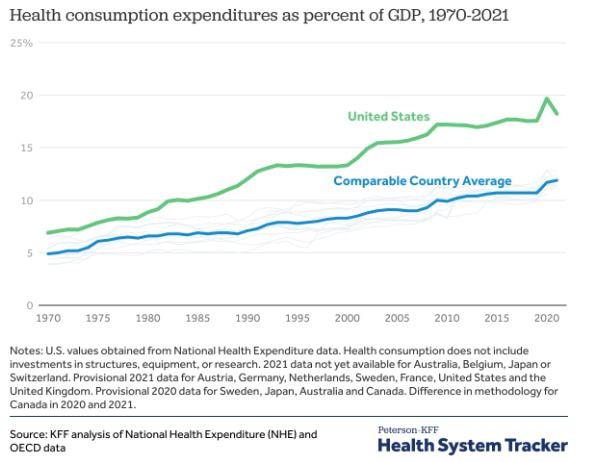|
By: Raina Ram In a nation founded on principles of equality and justice, it's well past the time to consider a visionary addition to the Constitution — the 28th Amendment, asserting the right to comprehensive healthcare. Beyond addressing the shortcomings of the current system, proposing this amendment represents a fundamental shift in national priorities, reaffirming the nation’s commitment to the health and well-being of every citizen. The heart of the argument for comprehensive healthcare lies in recognizing and rectifying systemic issues plaguing the current healthcare landscape. The absence of universal healthcare leaves a significant portion of the population without adequate coverage, turning healthcare into a privilege rather than a right. By constitutionally safeguarding healthcare as a fundamental right, the amendment would aim to correct this imbalance and align healthcare access with the core principles of equality apparently embedded in the nation's ethos. Central to the proposed amendment is the emphasis on preventative care. Shifting the focus from reactive measures to proactive healthcare, the 28th Amendment would mandate regular check-ups, screenings, and public health initiatives, aiming to prevent diseases before they become severe and costly to treat. Many countries around the world have better healthcare systems in place but not enough resources to have good quality healthcare. They don't have equipment to properly care for their citizens. Studies have shown that even if those countries do have the equipment, they are out of date and in rough condition. Most deaths are caused by poor-quality services and the use of non-sterilized equipment. That the U.S is one of the few high income countries with the ability to safely treat every one of its citizens, and that it still does not have a comprehensive healthcare system, makes it an even more significant and crucial priority. The proposed constitutional recognition of the right to comprehensive healthcare should also catalyze a shift in medical education and research. By aligning healthcare professionals' training with the broader goal of population health, the United States can build a more robust and responsive healthcare system that meets the diverse needs of its population. The amendment could also revolutionize medical education by considering subsidized or free education for aspiring healthcare professionals. In return, these professionals would commit to a few years of mandatory primary care service, addressing the shortage of primary care providers and contributing to the overall goal of enhancing access to healthcare across diverse communities. This innovative strategy aligns with the broader vision of comprehensive healthcare outlined in the amendment. Furthermore, the amendment could address healthcare disparities among different demographic groups. Specific language in the amendment could signal a commitment to rectifying these inequities through targeted investments in healthcare infrastructure, culturally competent care, and initiatives to eliminate biases in the healthcare system. Unfortunately, affordability still remains a significant barrier to healthcare access. The 28th Amendment should include provisions to ensure that the right to health care encompasses affordability, possibly involving price controls, measures to curb high medical billing practices, and set a framework for subsidizing healthcare costs. While critics may argue that constitutional amendments should focus on overarching principles, such as freedom of speech, healthcare's intrinsic connection to fundamental principles of life, liberty, and the pursuit of happiness cannot be overlooked. Adequate health is foundational to these principles, making the right to healthcare a logical extension of the Constitution's commitment to safeguarding essential aspects of human well-being. Countries like Canada, the United Kingdom, and Germany, with comprehensive healthcare systems, consistently demonstrate lower infant mortality rates, longer life expectancies, and better overall population health compared to the United States. These facts underscore the potential benefits of embracing healthcare as a fundamental right within the constitutional framework. The economic advantages of universal healthcare are noteworthy. Nations with universal healthcare systems often spend less per capita on healthcare while achieving broader coverage. For instance, according to data from the World Bank, the United States spent more than double per capita on healthcare compared to Canada in recent years, yet Canada provides healthcare coverage for its entire population. This stark contrast in efficiency and cost-effectiveness emphasizes the potential economic gains that could accompany the incorporation of comprehensive healthcare as a constitutional right.
The United States, without a universal healthcare system, grapples with higher healthcare costs and significant coverage gaps. According to the World Health Organization (WHO), the U.S. spends a higher percentage of its GDP on healthcare than any other country without achieving commensurate health outcomes. This economic burden, coupled with millions of uninsured or underinsured citizens, underscores the shortcomings of the current healthcare paradigm and provides a compelling argument for a constitutional shift. By recognizing healthcare as a fundamental right, the 28th Amendment has the potential to address these numerous disparities. It would align the U.S. with global best practices, fostering a healthcare system that not only prioritizes preventative care but also ensures equitable access for all citizens, regardless of age, race, disabilities, or financial status. The amendment's impact could extend beyond immediate health benefits to long-term economic advantages, as seen in countries with successful universal healthcare models.
2 Comments
Isaiah Pryor
11/17/2023 08:16:50 pm
hey man, just got done reading and as a democrat I agree. We need Obama back in office. Great Job Raina Ram whooooooo!!!!
Reply
I forgor
3/1/2024 09:14:05 am
I love money
Reply
Leave a Reply. |
Archives
May 2024
|

